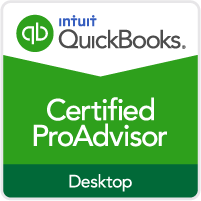Spring is here and that’s the perfect time to try something new in your business to make things fresh. Here are seven ideas to try in your business; pick the one that’s most likely to put the spring in your sales.
1. BOGO
“Buy one, get one” or BOGO deals are always hot and never grow old. Even if it’s not common in your industry, see if you can adapt and create a deal like this. The best thing about a BOGO strategy is it spreads more of your product or service around to a wider customer base, which can spur referrals or word-of-mouth, the best kind of sale.
Here’s an example of a BOGO applied to a service: Purchase a seat at a training workshop and bring a co-worker at no extra charge (or charge the price of materials and lunch to cover costs). You can also offer one month free (cheaper than offering 10 percent off on an annual basis) if you have a service that is performed over time.
2.Weekend Sale
Sales can move a lot of people to action. The key is to limit the time that they can get the discount to a very small window. Hold a time-limited sale when it is slow for you (could be during this month when people are hit with tax bills) to boost your volume.
3.Freshen Up Your Displays
If you have a storefront, when is the last time you’ve freshened up your look? Retail businesses work hard at this, but even if you aren’t in retail, take a look at what the customer sees. Is it inviting? Fresh? Pleasant? If not, do some spring cleaning!
If you work from home or have a virtual office, your website is your storefront. See if it needs some spring cleaning so that you look more attractive to your prospects and clients.
4.Introduce New Features
Make a slight change to your existing product by adding a new feature, offering it in a new color, or something similar. It will feel a little fresher to your clients, which may cause an increase in perceived value.
5. Start a New Niche
Once you’ve gotten a couple of clients from a new industry, you’re off and running. You will be able to learn from working with this new industry, and then you will be more valuable to others in that space.
Take a look at your client list, and see where you have just a few clients in the same industry but would like more clients like them. Then go for it!
6.Flavor of the Month Club
Baskin-Robbins used to have a “flavor of the month” so that customers would be enticed to come into their ice cream shops over and over again. You may be able to have an “item of the month” or even a VIP club where your customers get something new each month. Your VIP Club could also include priority treatment with specials or discounts. VIP clubs done right are especially effective in restaurants and retail, but can work in other industries too. The goal is to increase the frequency of visits to your business by enticing clients to become regulars.
7.The Biggest Opportunity of All
We often overlook the top opportunity that’s under our own noses: our current and past clients. They trust us the most, which is the highest hurdle to new business. If you haven’t contacted your top clients in a while, make a point to reach out. More sales could be just a phone call away.
Now it’s time to spring into action on the one idea that resonates most for your business.



 Want a free consultation with us? Give us a call at
Want a free consultation with us? Give us a call at 
